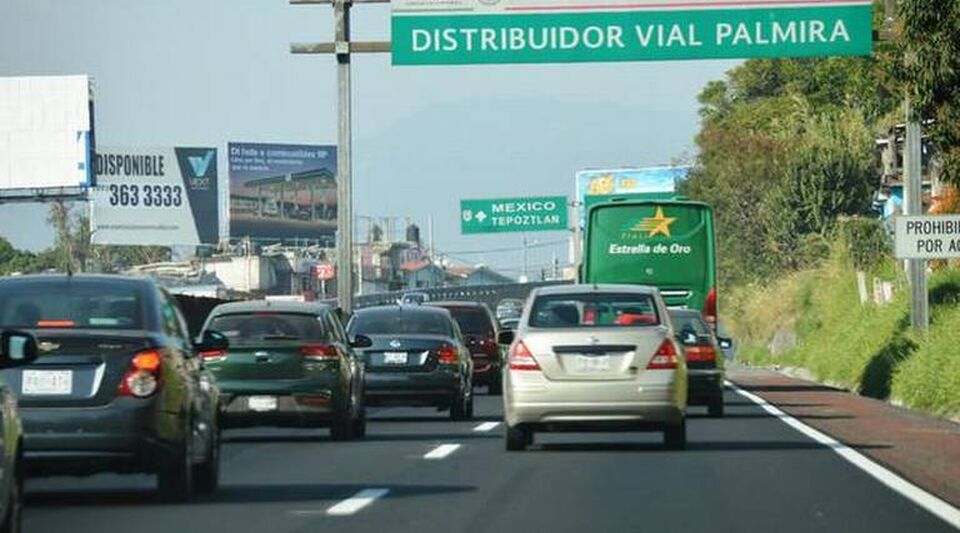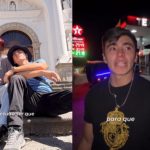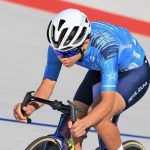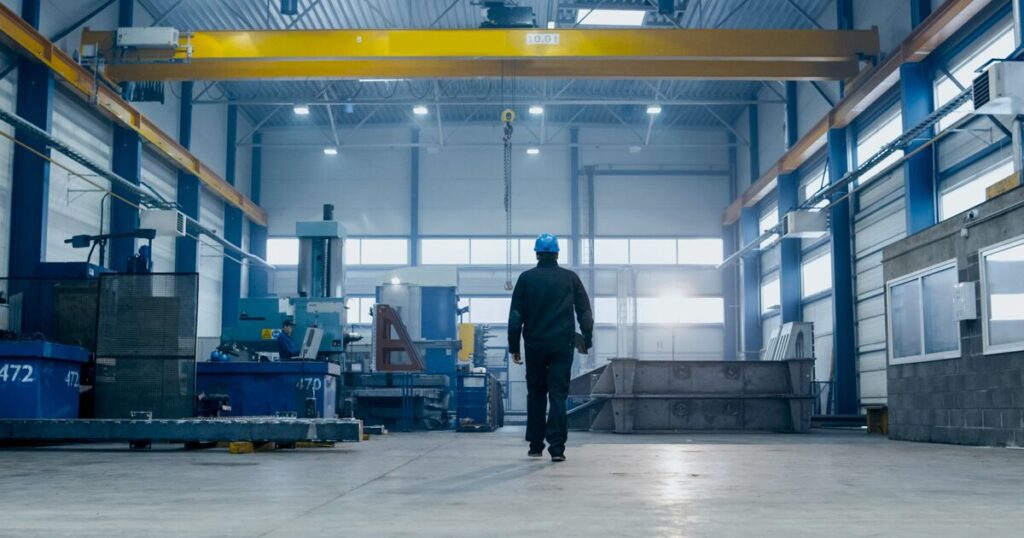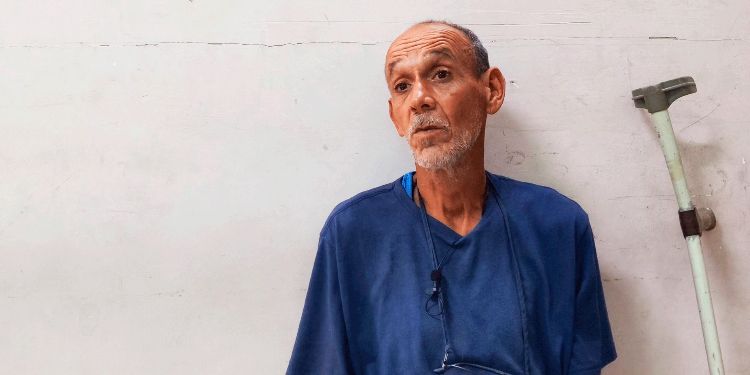On the third day in Villahermosa, in the state of Tabasco, they prepared a bag for us with a snack and explained that the trip was going to be a bit long, by bus, to Mexico City. We would have between 15 and 24 hours ahead of us, depending on the checkpoints we had to pass. In the bags we carried sandwiches, fruit, an energy drink and water, in addition to what we bought ourselves: cookiesdoritos, energy bars, chocolates, things like that, to stave off hunger.
At around 7, they made us say goodbye to the family and hand over the cell phones that were turned off. They took us out of the house in several vehicles, because there were about 50 of us, and took us to a place on the outskirts of Villahermosa, in the middle of a field of grass, where they put us against a concrete wall in an abandoned building. There were three buses: the first two were full of people who came from other wineries and in the last one we had to ride ourselves.
Added to the uncertainty of being incommunicado was the lack of friendliness of the Mexicans. “Get down, get down! Hit the wall, hit more!” they shouted. This was because if a drone passed by it could see us. According to what they told us, the authorities manage to know how many people are in a vehicle by the number of cell phones they detect turned on, and that is why they took them away from us.
We were there for about 15 or 20 minutes in total darkness, until they put the women and children on the bus. While we men waited downstairs, other vehicles kept arriving with more people, up to two or three cars, with 18 or 20 people. In the end, there were a lot of people on that bus. Three women sat in seats of two (because they had to be seated) and the men sat on the floor, some wedged into each other’s legs. After 20 minutes, my butt was already hurting and I thought: how am I going to last 20 or 30 hours like this!
Suddenly, the alarm went off because the air conditioning was broken. Although they tried to fix it, they couldn’t, so after standing there trying to get out, they couldn’t. The cars that had taken us picked us up again, and the next day the story repeated itself.
When I went down I felt as if they had given me a stick in my legs, in my spine, in my neck, and my eyes were swollen.
Except that then we were the last ones and, when we were going to get on the bus, we didn’t fit. Half of them were put in the trunk with others who were already there, about 15 people crushed there, and I, with four others, were put in the bus. With a pure push and between shouts, they managed to get us in and close the door.
So we had to make the trip to Mexico City for 17 hours, like animals. Among us there were two pregnant women.
We had no phones, we didn’t know what time it was and we couldn’t open the curtains. I was trying to joke and some laughed, but it’s been 17 hours on my feet, cramped, with leg cramps, sleepy.
Around 10 in the morning we arrived in the Mexican capital, which is a very impressive city. I was surprised by its immensity. They took us to a warehouse on the outskirts that did not have even the slightest conditions. We were not only the 130 or 140 who came on that bus, but another 60 more arrived.
Going down I felt as if I had been hit with a stick in my legs, in my spine, in my neck, and my eyes were swollen. I ordered coffee, but they only had what they call “American”, not espresso, as I wanted, and I had to settle.
They gave us the phones again and I was able to talk to the family. On the other side, they were crying and getting emotional, but I just told them: “I need to rest, let me rest.” When we got to the bedrooms, another jug of cold water: that was a large space and they had mats lying on the floor, very dirty, very dirty. So much so that I wondered how I was going to sleep there. I was so tired that I finally slept four hours, I couldn’t take it anymore.
I thought then that it was time for a bath, but there were three baths there for more than two hundred people. Queues for everything: to bathe, to relieve themselves, with cold, frozen water. I was afraid of getting sick, because the children began to have fevers and diarrhea, and many adults too, so I decided not to bathe. I bought wet wipes and with that I cleaned myself. He told me: “Well, that’s it, this is what it is, it’s not a tourist trip”.
I slept there with a sweater, with the coat that I had bought in Guatemala with a hood, pants with socks, and I covered myself with the blankets that they had given us, but even so, it was insufficient and I woke up with cramps. It was extremely cold in that place.
Also, the food was no longer so generous. I didn’t like the tortilla chips, which was what they gave us. A little chicken with a tortilla, a little meat with a tortilla, some spaghetti… with a tortilla. And I couldn’t even eat anymore. Luckily, where we were they also sold us things, so one day I ordered to buy a Whopper from Burger King. It was the first time I was going to try the famous Whooper and when I did I thought: Wow, incredibly delicious. It’s like the one in TV commercials or TV shows. package. I ate her with great pleasure, I liked her and, at least that day, I ate well.
There I met a man who lived in Nicaragua, not bad, but he believed that because of Ortega the whole country was being destroyed and that there was no turning back from that situation, so his wife went before him, who was imprisoned at the border for three months And now he was coming.
I also struck up a conversation with two brothers from Ocotal, although one lived in Managua, who left because one of them got into drug problems and they no longer had anything to do there. One had been to the demonstrations in 2018, something similar to what happened in Cuba on July 11, and many people had hopes, he told me, that Ortega would finally leave. As in the end there was no change, he decided to leave because he did not want to live in a dictatorship. And that was the only Nicaraguan I met on the road who said something like that to me. The others, neither fu nor fa of politics.
I didn’t want to say that I had a fever, because in that case, they wouldn’t let you go out, but a Honduran noticed: “Hey, do you feel bad? Do you need something, can I help you?”
In that place I felt very bad: I was suffocating, I felt pain in my chest. They told us it would be two days, but we had already been four or five. I even called my cousin in the United States and told him: “I can’t, I don’t think I’ll be able to. This is not normal. There are a lot of people here, it’s very crowded.”
One day I started with a fever and had to buy medicine. We were very afraid that it was covid, there, with more than 200 people together, but in the end it was a stomach infection.
I didn’t want to say that I had a fever, because in that case, they wouldn’t let you out, but a Honduran noticed: “Hey, are you feeling sick? Do you need something, can I help you?” I explained to him what was happening to me, but the worst thing was that he was having an anxiety crisis, and he told me: “Hey, don’t compadre, don’t sit like that, lie down here.” And that gave me a lot of encouragement. My attack began to pass – your mind plays tricks on you – and all thanks to this Honduran friend, with whom I am in communication today.
One fine day they told us that, at dawn, we would leave for Monterrey, without explanations of how it was going to be or anything. I took the last 250 Mexican pesos that I had left and bought medicine, cookies, Electrolit. At 10 at night they woke us up and took us out in some vans, one of those guagüitas that fit around 18 or 20 people. In a place quite close, on a very dark street, they quickly let us down, we threw our backpack into the trunk of a bus and, running, we got in.
That time, I thought we weren’t going to be tight, but I was wrong. More and more people kept coming in, too many. And so to Monterrey, 15 horrible hours of travel.
________________________
Collaborate with our work:
The team of 14ymedio is committed to doing serious journalism that reflects the reality of deep Cuba. Thank you for joining us on this long road. We invite you to continue supporting us, but this time becoming a member of our newspaper. Together we can continue transforming journalism in Cuba.
